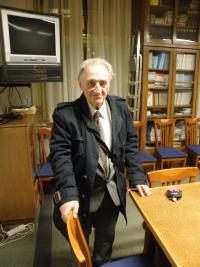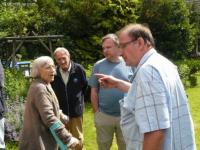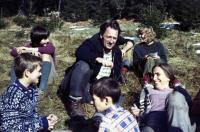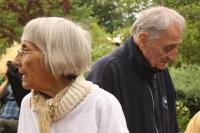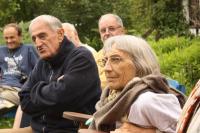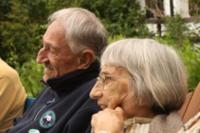If you want to do good Scouting, then it‘s not about badges, it‘s about relationships
Jan Pfeiffer was born April 17, 1928. He grew up in Lomnice nad Lužnicí. After completing his studies at the grammar school in Třeboň he studied neurology at the Faculty of Medicine in Prague. In 1947 he joined the university Rover crew in Prague, and after the communist coup d‘état in 1948 he began attending the meetings of the Circle of Pavel Křivský, whose teaching had a profound influence on his entire life. In the 1960s, he and his wife Janka formed a hiking club called Kruh (Circle), which has continued its activity under the patronage of various organizations up to now. He worked in the Jedlička‘s Institute for Disabled Children, and then at the neurology department at the university in Prague, where he established the Clinic of Rehabilitation Medicine. He became a member of the Communist Party in the early 1960s and he served in the executive council of Pioneer (pro-regime organization for children and youth - transl.‘s note). After the Velvet Revolution he helped with the restoration of Junák (Czech Boys Scouts organization - transl.‘s note). Due to his past membership in the Party he had to step down from his directorial position at the rehabilitation clinic. He worked as an adviser to the minister of health.

